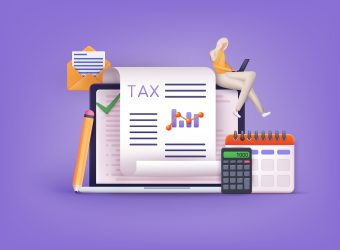
Tax disputes can be a significant drain on resources for any business, and with recent data suggesting that over 60 per cent of businesses are currently embroiled in a tax dispute with HM Revenue & Customs (HMRC) that has lasted more than a year, this is clearly a widespread issue.
There have been concerns about HMRC’s resources and response times, which have seemingly led to disputes becoming particularly challenging to navigate.
However, there are steps businesses can take to avoid and manage these disputes effectively.
Understanding the landscape
Recent data has suggested that three in five businesses are currently involved in a tax dispute with HMRC that has lasted more than a year.
The data included over 500 mid-sized businesses and highlights the difficulties many businesses face when dealing with the complex tax system.
HMRC’s latest annual report shows that there were 39,500 tax tribunal appeals ongoing as of 31 March 2023, an 8 per cent rise on the previous year.
For large businesses subject to an HMRC enquiry, the average length of time taken to settle an enquiry including those in litigation is 36 months.
The role of alternative dispute resolution (ADR)
Despite these challenges, there are alternative routes to resolving tax disputes that businesses may not be fully utilising.
The data suggested that while 92 per cent of those in dispute with HMRC were aware of ADR routes, the rates of ADR usage remain relatively low. In 2022/23, there were only 1,013 applications for ADR.
ADR is a process where trained HMRC mediators work with applicants and the HMRC officer dealing with their case to explore ways to resolve the dispute.
It can be used at any stage of a tax enquiry, including after HMRC has issued a decision. Each application for ADR is treated on a case-by-case basis, and HMRC aims to conclude the ADR process within 120 days, a far shorter timescale than traditional dispute resolution methods.
How businesses can navigate and avoid tax disputes
Simplify and modernise
The complexity of the tax system can often lead to misunderstandings and disputes. Businesses should invest in modern accounting software and seek professional advice to ensure they are correctly interpreting and applying tax laws.
Consider ADR
Businesses should consider the option of ADR at an early stage in any dispute. With 87 per cent of ADR cases concluding in resolution, it is a valuable tool for dispute resolution.
The later ADR is considered, the higher the risk of wasted time and high costs associated with a protracted dispute.
Stay informed and compliant
Keeping up to date with tax laws and regulations can help businesses avoid disputes in the first place. Regularly reviewing and updating internal processes to ensure compliance with tax laws is crucial.
Open communication with HMRC
Maintaining open lines of communication with HMRC can help to resolve issues before they escalate into full-blown disputes. If a business is unsure about a particular tax issue, it is better to seek clarification from HMRC or a tax professional than to make an uninformed decision.
While tax disputes can be challenging and time-consuming, businesses have several strategies at their disposal to navigate and avoid them.
For further information on how to avoid tax disputes, our expert team are here to help. Contact us today.

